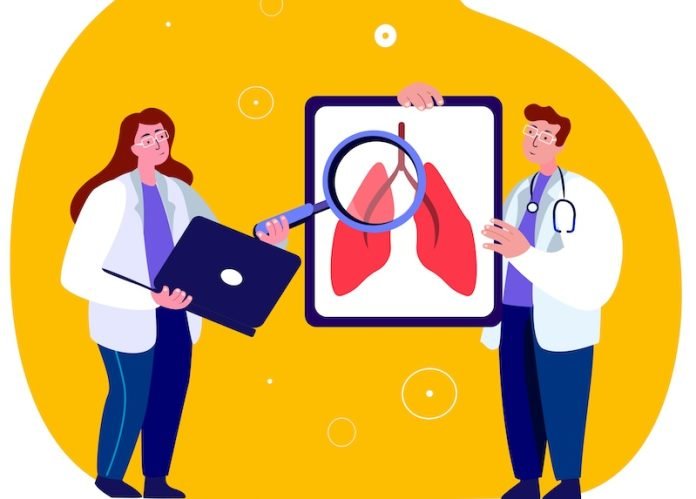
Pneumonia is an infection that inflames the air sacs in one or both lungs. These air sacs may fill with fluid or pus, causing symptoms such as a cough with phlegm or pus, fever, chills, and difficulty breathing. Understanding what causes pneumonia can help you prevent and manage this serious illness.
Pneumonia can be caused by a variety of germs, including bacteria, viruses, and fungi. Bacterial pneumonia is the most common type, often caused by the bacterium Streptococcus pneumoniae.
This type of pneumonia can occur on its own or after a person has had a cold or the flu. Research shows that certain people are more at risk, including the elderly, infants, and people with weakened immune systems.
Studies also indicate that vaccination can help prevent bacterial pneumonia, especially in high-risk groups.
Viral pneumonia, caused by various viruses including influenza (flu) and respiratory syncytial virus (RSV), is also common. Viruses are the leading cause of pneumonia in children under five years old.
Viral pneumonia can range from mild to severe and, like bacterial pneumonia, can follow a cold or the flu. Research has shown that flu vaccines can significantly reduce the risk of viral pneumonia by protecting against influenza, one of the primary viral causes.
Fungal pneumonia is less common and usually affects people with weakened immune systems, such as those with HIV/AIDS or those taking medications that suppress the immune system.
Fungi that cause pneumonia can be found in soil or bird droppings, and certain types are more common in specific geographical areas.
For instance, Histoplasma is found in the Ohio and Mississippi River valleys, while Coccidioides is more common in the southwestern United States. Research indicates that avoiding areas where these fungi are common can help reduce the risk.
Aspiration pneumonia occurs when food, drink, vomit, or saliva is inhaled into the lungs instead of being swallowed into the esophagus.
This type of pneumonia is more likely to happen if something disturbs your normal gag reflex, such as a brain injury, swallowing problem, or excessive use of alcohol or drugs.
Research highlights the importance of good oral hygiene and careful monitoring of those at risk to prevent aspiration pneumonia.
Hospital-acquired pneumonia is a type of bacterial pneumonia that occurs during a hospital stay for another illness. This can be more serious than other types of pneumonia because the bacteria causing it may be more resistant to antibiotics.
Patients on ventilators are at higher risk. Studies suggest that rigorous hand hygiene and sterilization practices in hospitals can significantly reduce the incidence of hospital-acquired pneumonia.
Community-acquired pneumonia refers to pneumonia acquired outside of a healthcare setting. This can be caused by bacteria, viruses, or fungi. It’s important to recognize symptoms early and seek medical attention to prevent complications.
Research supports the effectiveness of vaccination, good hygiene practices, and healthy lifestyle choices in reducing the risk of community-acquired pneumonia.
The immune system plays a crucial role in protecting against pneumonia. People with weakened immune systems are more susceptible to the disease.
This includes people with chronic illnesses such as asthma, diabetes, or heart disease, as well as those undergoing treatments that affect the immune system, such as chemotherapy.
Research underscores the importance of managing chronic conditions and avoiding factors that can weaken the immune system to lower the risk of pneumonia.
Smoking damages the lungs and reduces their ability to fight off infections, making smokers more susceptible to pneumonia. Studies have shown that quitting smoking can significantly reduce the risk of respiratory infections, including pneumonia.
Age is another significant factor. Infants and young children, whose immune systems are still developing, and older adults, whose immune systems may be weakening, are at higher risk for pneumonia.
Vaccination and prompt treatment of respiratory infections in these age groups are crucial in preventing pneumonia.
In summary, pneumonia is caused by a variety of germs, including bacteria, viruses, and fungi. Factors such as a weakened immune system, smoking, and age can increase the risk.
Preventative measures such as vaccination, good hygiene, avoiding smoking, and managing chronic health conditions can significantly reduce the risk of pneumonia.
By understanding these causes and taking appropriate steps, you can protect yourself and your loved ones from this potentially serious illness.
If you care about diabetes, please read studies that not all whole grain foods could benefit people with type 2 diabetes, and green tea could help reduce death risk in type 2 diabetes.
For more information about health, please see recent studies about unhealthy plant-based diets linked to metabolic syndrome, and results showing Mediterranean diet could help reduce the diabetes risk by one third.
Copyright © 2024 Knowridge Science Report. All rights reserved.



